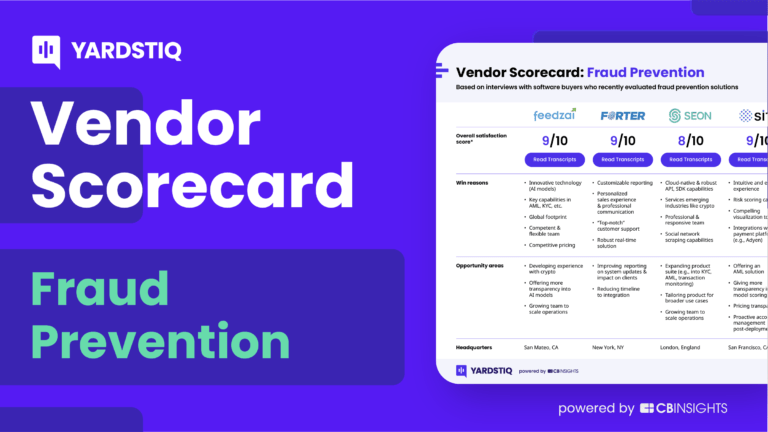
NICE Actimize
Founded Year
1999Stage
Acquired | AcquiredTotal Raised
$24MValuation
$0000Revenue
$0000About NICE Actimize
NICE Actimize develops financial crime, risk, and compliance solutions. The company offers services such as fraud prevention, anti-money laundering detection, and trading surveillance, aimed at identifying financial crime, preventing fraud, and ensuring regulatory compliance. It primarily serves global financial institutions and government regulators. It was formerly known as Actimize. It was founded in 1999 and is based in Hoboken, New Jersey. In July 2007, Actimize was acquired by NICE Systems.
Loading...
NICE Actimize's Product Videos


NICE Actimize's Products & Differentiators
SURVEIL-X Holistic Conduct Surveillance Suite
The SURVEIL-X Holistic Trade Compliance platform analyzes and relates all trade related data: Comprehensive surveillance coverage for all regulatory needs; Breaks down barriers between data silos enabling deeper analysis and true risk detection; oes beyond simple thresholds and detection rules to correlate all relevant data sources; Can connect to, ingest and analyze data from many real-time data sources, including all forms of communications
Loading...
Research containing NICE Actimize
Get data-driven expert analysis from the CB Insights Intelligence Unit.
CB Insights Intelligence Analysts have mentioned NICE Actimize in 1 CB Insights research brief, most recently on Feb 27, 2023.

Feb 27, 2023 report
Top fraud prevention companies — and why customers chose themExpert Collections containing NICE Actimize
Expert Collections are analyst-curated lists that highlight the companies you need to know in the most important technology spaces.
NICE Actimize is included in 1 Expert Collection, including Regtech.
Regtech
1,721 items
NICE Actimize Patents
NICE Actimize has filed 1 patent.

Application Date | Grant Date | Title | Related Topics | Status |
|---|---|---|---|---|
10/15/2013 | Financial risk, Financial risk modeling, Financial risk management, Financial data vendors, Actuarial science | Application |
Application Date | 10/15/2013 |
|---|---|
Grant Date | |
Title | |
Related Topics | Financial risk, Financial risk modeling, Financial risk management, Financial data vendors, Actuarial science |
Status | Application |
Latest NICE Actimize News
Oct 23, 2024
Get the hottest Fintech Singapore News once a month in your Inbox In Asia-Pacific (APAC), fraud is becoming an increasingly serious challenge for financial institutions, an issue that has been exacerbated by the rapid adoption of digital transactions and online banking. To address these risks, financial institutions in the region are adopting new security measures and embracing cutting-edge technologies, a new research by NICE Actimize found. The study, which gathered insights from 114 fraud risk professionals across nine APAC markets in late 2023, found that payment systems and online banking have emerged as the primary concerns for fraud risk professionals across APAC, identified by 66% of the respondents as the most common type of threat observed over the prior 12 months. This highlights how the region’s expanding digital consumer base and the proliferation of faster payment systems have led to a spike in cyber-related fraud, the report says, and shows that financial institutions are struggling to keep up with the evolving threat landscape, leaving them vulnerable to increasingly sophisticated attacks. Top 5 fraud typologies (past 12 months), Source: Fraud Barometer 2024, NICE Actimize 2024 The frequency of these fraud incidents is also a major concern, with almost half of the respondents (49%) stating that their organizations encounter payments and digital banking fraud at least once a month. This includes 8.5% of respondents who said they encounter such activity “almost daily”. When asked about trends in digital banking fraud attacks, almost two-thirds (64%) of respondents said they observed an increase over the past 12 months. Booming digital banking adoption fuels fraud Over the past couple of years, APAC has experienced a digital banking revolution fueled by technological advancements, supportive regulations, and evolving consumer expectations. Over 40 digital banks have launched across Asia to date, making the region one of the world’s most developed and advanced digital banking ecosystems in the world. In 2022, 11 out of the 20 profitable digital challenger banks worldwide were based in APAC, suggesting that APAC digital challenger banks have been relatively more successful than their European or American counterparts. Analysts and industry observers attribute this success to the region’s characteristics that include its large population of unbanked, strong mobile culture and rapidly growing middle class. However, the rapid pace of digital transformation has also introduced new risk challenges, with several prominent fraud cases highlighting these risks. In 2016, criminals used fraudulent orders on the SWIFT payments system to steal US$81 million from the Bangladesh central bank account at the Federal Reserve Bank of New York. The money was sent to accounts at Manila-based RCBC and then vanished into the casino industry in the Philippines. A year later, Kathmandu-based NIC Asia Bank suffered a major heist, with hackers managing to make about US$4.4 million in fraudulent transfers to countries including Britain, China, Japan, Singapore and the United States when the bank was closed for annual festival holidays, according to Reuters. Top anti-fraud measures implemented by APAC financial institutions To address escalating fraud threats, financial institutions in APAC are relying on a number of different strategies. The NICE Actimize research found that enhanced monitoring for suspicious transactions (76.6%) is the most commonly adopted measure. This is followed by advanced authentication methods (70.2%), customer education initiatives (68.1%), and the implementation of real-time fraud detection systems (53.2%). Respondents also said they had adjusted their transaction limits to reduce the impact of fraud losses (53%), enhanced security on their banking apps (40%), undertaken security audits of their mobile banking infrastructure (32%), and partnered with network operators or device makers to enhance security (26%). Preventive Measures for Payment and Digital Banking Fraud (Top 5), Source: Fraud Barometer 2024, NICE Actimize , 2024 The study also found that APAC financial institutions are increasingly embracing information sharing. More than a quarter (25.5%) said their anti-fraud and AML teams now collaborate “very closely”, while almost a third (30%) said such collaboration occurred “often”. This shift towards greater cooperation is in line with regulatory efforts across various APAC jurisdictions to encourage information sharing as a means to combat fraud. In June 2023, Hong Kong launched the Financial Intelligence Evaluation Sharing Tool (FINEST) , an electronic platform allowing retail banks to share information where there are indications of criminal activity. Similarly, Singapore regulators launched in April 2024 a digital platform called COSMIC. The digital initiative aims to bolster the defense against money laundering, terrorism financing, and the proliferation of weapons of mass destruction, allowing major commercial banks to share financial crime risk information with one another if stipulated thresholds are met. Collaboration Between Fraud and AML Team Within the Institution, Source: Fraud Barometer 2024, NICE Actimize, 2024 APAC financial institutions embrace technology The research also found that technology is playing a pivotal role in fraud prevention. The largest proportion of respondents (57.4%) said their organizations have invested in advanced analytics or machine learning (ML) tools to enable real-time fraud detection. About 55.3% of respondents reported investments in online and mobile banking security, and 48.9% reported adoption of biometric security solutions. Technologies for Fraud Prevention and Detection, Source: Fraud Barometer 2024, NICE Actimize 2024 Despite these investments, the study found that the use of artificial intelligence (AI) and ML in fraud prevention across APAC’s financial services industry remains in its infancy. Only 27.7% of respondents said that these technologies are fully integrated in their organizations, while 46.8% reported their use only in “specific scenarios” or for certain types of fraud. A further 12.8% of respondents said their organizations are “currently testing” AI/ML and have not yet integrated the technology into their daily operations. Expectations are that the adoption of these tools will increase over time. Use of Al/ML to Identify and Mitigate Fraud Risks, Source: Fraud Barometer 2024, NICE Actimize, 2024
NICE Actimize Frequently Asked Questions (FAQ)
When was NICE Actimize founded?
NICE Actimize was founded in 1999.
Where is NICE Actimize's headquarters?
NICE Actimize's headquarters is located at 221 River Street, Hoboken.
What is NICE Actimize's latest funding round?
NICE Actimize's latest funding round is Acquired.
How much did NICE Actimize raise?
NICE Actimize raised a total of $24M.
Who are the investors of NICE Actimize?
Investors of NICE Actimize include NICE, Viola Ventures, Vertex Ventures Israel, Giza Venture Capital and FTV Capital.
Who are NICE Actimize's competitors?
Competitors of NICE Actimize include Tookitaki, Featurespace, NetGuardians, Hawk, Four Eyes Financial and 7 more.
What products does NICE Actimize offer?
NICE Actimize's products include SURVEIL-X Holistic Conduct Surveillance Suite and 4 more.
Loading...
Compare NICE Actimize to Competitors

ComplyAdvantage operates as a financial crime risk data and detection platform using artificial intelligence (AI). It offers a database of people and companies to help organizations identify risk events from structured and unstructured data points. It serves banks, insurance, payments, cryptocurrency, and more sectors. ComplyAdvantage was formerly known as Mimiro. The company was founded in 2014 and is based in London, United Kingdom.

Quantexa operates as a data and analytics software company that provides a range of decision intelligence software. It offers solutions for data management, know your customer (KYC), customer intelligence, financial crime, and security throughout the customer lifecycle. It serves the banking, government, insurance, and communication service providers (CSP) sectors. It was founded in 2016 and is based in London, United Kingdom.

ThetaRay provides an artificial intelligence (AI) powered transaction monitoring solution. It allows payment financial technology and banks to expand their business opportunities and grow revenues through cross-border and domestic payments. The company offers an AI-powered transaction monitoring system, Sound Navigation and Ranging (SONAR), which is designed to detect and prevent money laundering and other financial crimes. The company was founded in 2013 and is based in Hod Hasharon, Israel.

Lucinity is a company focused on augmenting anti-money laundering (AML) compliance through artificial intelligence (AI) in the financial technology sector. The company offers a platform that provides AI-driven customer insights, transaction monitoring, regulatory reporting, and workflow management to help businesses manage compliance more efficiently. Lucinity primarily serves startups, scale-ups, enterprises, banks, and payment service providers. It was founded in 2018 and is based in Reykjavik, Iceland.

Unit21 operates as a detection and investigations platform for anti-money laundering. It helps protect businesses against adversaries through a simple application programming interface (API) and dashboard for detecting and managing money laundering, fraud, and other sophisticated risks across multiple industries. The company was founded in 2018 and is based in San Francisco, California.

Sift provides real-time machine learning fraud prevention solutions for online businesses. Its machine-learning software automatically learns and detects fraudulent behavioral patterns and alerts businesses before they or their customers are defrauded. It provides its services in a wide range of industries, such as financial technology, retail, payment service providers, and more. It was formerly known as Sift Science. It was founded in 2011 and is based in San Francisco, California.
Loading...